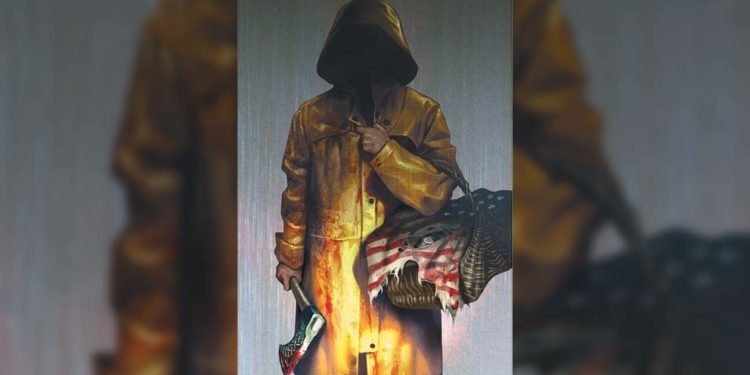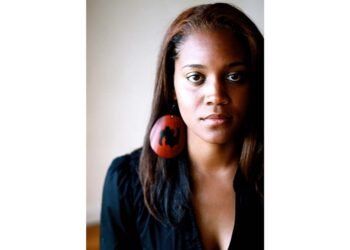While the first issue mostly focuses on building the setting and characters, the press release for the series provides further details about the horror to come: “This is the story of June Branch, a young woman trapped with four cunning criminals who have snatched her boyfriend for deranged reasons of their own. Now she must fight for her life with the help of an impossible 8th-century Viking axe that can pass through a man’s neck in a single swipe — and leave the severed head still conscious and capable of supernatural speech. Each disembodied head has a malevolent story of its own to tell, and it isn’t long before June finds herself in a desperate struggle to hack through their lies and manipulations…racing to save the man she loves before time runs out.” Further issue solicitations suggest that June may be the victim of her own delusions, a deranged axe murderer rather than the hero, adding yet another element of intrigue to the story.
Those familiar with Hill’s work in the Eisner-winning comic series Locke & Key and novels Heart-Shaped Box and NOS4A2 will instantly recognize the high-concept originality of the series and the author’s penchant for supernatural objects with uncanny abilities. And, of course, there are the welcome references to the works of Stephen King, Hill’s father, who passed his appreciation for interconnected stories down to his son. From references to Shawshank Prison to Derry, Maine, Basketful fits right in with King and Hill’s expansive world. Leomacs’ art also has a Rockwell-ian quality that evokes Americana and nostalgia, concepts that begin to take on an eerie quality as the narrative delves further into the dark.
Basketful has the kind of immediate sincerity, endearing characterizations and deliberate pacing that highlight Hill’s roots as a novelist. While there are certainly comparisons to be made to EC Comics, and DC’s own House of Mystery and House of Secrets titles that cater to horror and suspense tales, Basketful is most reminiscent of the early days of Vertigo in the 1990s, in which Karen Berger oversaw a collection of horror-fantasy titles including The Sandman, The Saga of Swamp Thing and Hellblazer. Yet, while many of those titles have found themselves either impossible to adapt to film or too expensive to last more than a season, Hill House feels geared for film and television.
On Tuesday, Warner Bros. unveiled the details for its new streaming platform, HBO Max. DC Comics’ extensive library of characters was touted as being crucial to the service in the form of series and films. While this news to most meant superhero and supervillain properties, that’s only one part of DC Comics. DC Black Label, which has essentially replaced Vertigo, isn’t just publishing edgy superhero and villain stories, but high fantasy like The Last God by Phillip Kennedy Johnson and artist Riccardo Federici (the first issue also goes on sale Wednesday) and Hill House. Surely the emphasis DC is placing on its Black Label will prove fruitful for Warner Bros and, subsequently, HBO Max.
Hill’s NOS4A2 has already been adapted as a TV series on AMC, and, after years in development at other networks, Locke & Key will finally be heading to Netflix. Horror, in theaters and on television and streaming services, is at the height of creativity right now. Hill House’s offering of limited series presents an easier means of adaptation than hundreds of issues that made up many of Vertigo’s best-known series. Basketful of Heads and Hill House’s other offerings feel perfectly designed to further cement Warner Bros. and its subsidiary New Line’s presence in the realm of horror. Already boasting the Conjuring universe, It, Doctor Sleep, the upcoming Salem’s Lot and the filmmaking talents of James Wan, Mike Flanagan, David F. Sandberg, Gary Dauberman and Andy Muschietti, the addition of Joe Hill and his fellow Hill House creators has so much potential for Warner Bros., it’s downright scary.















































